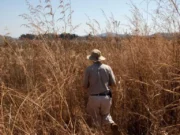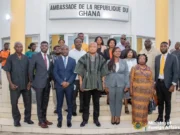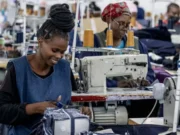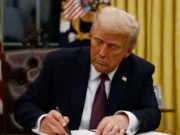President Nana Addo Dankwa Akufo-Addo has expressed satisfaction with the Free Senior High School (SHS) policy, introduced by his administration in September 2017.
“Five (5) years on following the implementation of the Free Senior High School programme, which has guaranteed a minimum of Senior High School education for 1.6 million Ghanaian children, I want to state, without any equivocation, that I am very proud of the policy and of its results thus far”, he noted.
The free SHS policy is currently guaranteeing a minimum of senior high school education for all of Ghana’s children.
Speaking at the 70th anniversary celebration of the Tamale Senior High School (TAMASCO) in Tamale, on Saturday, President Akufo-Addo stressed that the experiences of developed nations have shown that the most efficient way to create a society of opportunities and guarantee the future of a nation, is by investing in education and skills training of the youth.
He noted that without an educated populace, Ghana cannot transition from the status of a developing to a developed nation.
“It is the people of Ghana, Ghanaians like you and I, and especially the youth of today, who are going to build Ghana”, he added.
Akufo-Addo impressed
The results of the 2020 and 2021 WASSCE results, President Akufo-Addo stated, give further evidence of why the Free SHS policy has been a success so far.
“There were some who described Free SHS as “a waste”; some said it would “destroy our Ivy League Schools”, and some indicated that the policy was going to compromise the quality of senior high school education. None of these have happened, and I am sure they have eggs on their faces now, or should have.
“The 2021 WASSCE results of the second batch of the ‘Akufo-Addo graduates’ shows 54.08% of students recording A1-C6 in English, as opposed to 51.6% in 2016; 65.70% recording A1-C6 in Integrated Science in 2021, as opposed to 48.35% in 2016; 54.11% recording A1-C6 in Mathematics, as compared to 33.12% in 2016; and 66.03% recording A1-C6 in Social Studies, as compared to 54.55% in 2016. Lest we forget, the 2021 batch of students were the pioneers of the double track system, which elicited a lot of vilification and unfounded criticism on its introduction.”
Another indication of the value of the Free SHS policy, he stated, is the dramatic increase in the percentage of students from TAMASCO, who have qualified to attend University.
“In 2015, it was 29.2%; in 2016, it was 31.4%; in 2017, it was 34.7%; in 2018, it was 31.3%; in 2019, it was 46.3%; and in 2021, it was 45.8%. Surely, Chairperson, there can no longer be any controversy about the validity of the Free SHS policy and its consequential measures. It is working,” he said.
Eschew partisanship
President Akufo-Addo has therefore appealed to all Ghanaians to “forgo partisan, parochial considerations, which confer little benefit, and all agree that Free SHS has to be a part of our national educational architecture, for, at least, a generation, if not forever. Our nation will clearly be empowered and enriched”.
Government’s commitment to ensuring the provision of quality, relevant education, President Akufo-Addo indicated, has led to the introduction of the teacher licensure regime aimed at professionalising teaching, and bringing it in line with international best practices. Thus far, the National Teaching Council has issued some 129,000 licenses to teachers.
Government, he added, has commenced the construction of twenty (20) Science, Technology, Engineering and Mathematics (STEM) centres across the country, with all twenty (20) at various stages of completion.
Additionally, out of the 1,119 projects, being constructed under the Free Senior High School Infrastructure Intervention, 657 have been completed, with some 2,718) vehicles procured and distributed by the Ghana Education Service to various institutions across the country.
With the completion of nine Model Senior High Schools across the country being imminent, President Akufo-Addo told the gathering that “in 2022, Government will expand the Free SHS Programme to cover all first-year students in public TVET Institutes.”
He assured further that Government will continue with the programme of implementing the various reforms and projects in the TVET sector, including the rehabilitation and upgrading of technical universities, upgrading and modernisation of the 34 NVTI centres, retooling of TVET Institutes, and the establishment of ten (10) state-of-the-art TVET institutes.









































